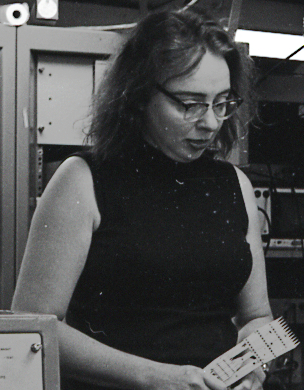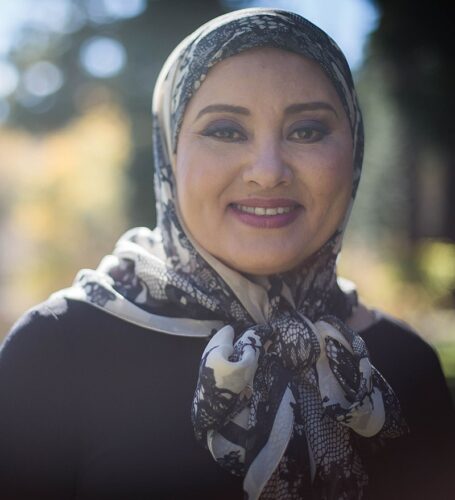You may be aware that Wikipedia suffers its fair share of gender imbalance and that many are working to change it. Only 19% of biographies are about women. But the gender gap isn’t just about content. It’s also about the contributors who write that content–87% of whom identify as male. It’s important to bring women’s voices to Wikipedia and as the organization that brings in 19% of all new active editors on the English Wikipedia, we’ve made this a priority. So far, 70% of participants in our programs identify as women and nonbinary people, in contrast to the 22% of existing Wikipedia editors. We believe we are making a meaningful difference for Wikipedia and public knowledge as a whole.
Here are some recent stories of the incredible work that students and experts have accomplished in our programs. As Women’s History Month comes to a close, we want to celebrate these achievements and continue to carry this work forward.
Amplifying the voices of Indigenous women on Wikipedia
Women are often the de facto leaders in community change, social movements, and political groundswells. So why are only 19% of Wikipedia biographies about them? That’s what Natchee Barnd set out to correct in our recent Women in Red Wiki Scholars course. He then went on to implement a Wikipedia writing assignment into his course at Oregon State University, inviting students to take on a similar mission. Read more…
Celebrating role models as a way to invite young women into STEM fields

When women are exposed to women role models in science, they are more likely to pursue STEM careers and feel a greater sense of belonging in those fields–a key indicator for career longevity. Reading just one story of a woman in a successful career makes a difference for the confidence and performance of undergraduates in the same field. So imagine 100,000 people reading that same story. What could that do for inequity in STEM at large? You may ask, how could anyone (beyond the rare celebrity scientist) reasonably get that much exposure? Wikipedia biographies are one way to be impactful in this area. Read more…
Recognizing the legacies of LGBTQ+ pioneers
In celebration of Pride Month, Wiki Education recruited participants, particularly faculty and graduate students in the LGBTQ+ community, for a Wiki Scholars course focused on expanding Wikipedia’s coverage of notable LGBTQ+ people. Thanks to the dedication of the people in this course, Ruth Bleier has a more detailed biography that tells the story of her research of gender biases in biology. And Rachel Levine, the first openly transgender government official to hold an office requiring a Senate confirmation, also has a more comprehensive biography. Not only did participants bolster the stories and experiences of underrepresented people in the course, but they also found great meaning in the work itself. Read more…
Counteracting inequities in STEM & recognizing womens’ achievements in real time

For a scientist, the typical avenues of exposure are important for career advancement, but they’re unlikely to reach an audience of thousands like Wikipedia does. A Wikipedia biography recognizes a scientist’s contributions in real time. It surfaces her expertise to journalists and panel organizers, humanizes her beyond her CV or university profile, and shows young people interested in STEM what career paths are possible for them. Considering women and people of color are chosen less often for speaking opportunities, are contacted less often by journalists, and aren’t recognized for their work in equal measure to white male peers, exposure on Wikipedia can help turn the tides. Through Wiki Education’s courses, American Physical Society (APS) members are crediting historically “hidden figures” in STEM for their accomplishments, discoveries, and expertise. APS Wiki Scientists are also writing these Wikipedia biographies before pivotal career moments, ensuring the public has the full picture when a scientist is in the spotlight. Read more about our partnership with APS…
To learn more about Wiki Education’s impact, visit wikiedu.org/impact. If you’re interested in implementing a Wikipedia writing assignment in your classroom, visit teach.wikiedu.org. And to learn more about our Wikipedia editing courses, visit learn.wikiedu.org.
